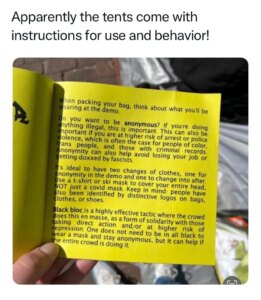Understanding the Complex Intersection of Free Speech, Protests, and National Security in Universities

In recent weeks, the atmosphere at some of America’s universities has become increasingly fraught with controversy as protests, often linked to international conflicts, raise critical questions about free speech and national security. At the heart of this discussion is the First Amendment, which famously protects the rights to peaceful assembly and expression. However, as the landscape evolves, so too does the debate around what constitutes lawful and permissible expression.
The Recent Policy Shift
The current administration’s recent announcement that federal funding will be revoked for schools, such as Columbia University, which allow protests deemed “illegal,” signals a substantial shift in how universities will negotiate the rights of free speech against the backdrop of civil unrest. The Education Department’s decision to withdraw a $400 million grant to Columbia, citing inaction concerning harassment of Jewish students, underscores a growing frustration over how universities handle extreme expressions of ideology that can border on hate speech.
A Closer Look at Protests on Campus
There is increasing evidence that protests, especially those supporting groups like Hamas, are not merely spontaneous expressions of student dissent. Reports indicate that a significant number of those arrested during recent protests at Columbia were not officially enrolled as students, suggesting an organized effort to instigate unrest. Such troubling dynamics have amplified concerns about who is truly behind these protests.
Images of identical tents and slogans across liberal universities hint at extensive coordination, raising questions about the influence of various external actors. Respected institutions like Columbia and Harvard must grapple with their roles as facilitators of free speech while simultaneously safeguarding the welfare of their students.
External Influences and National Security
The appearance of known terrorist figures, such as Sami Al-Arian, on campuses adds another layer of concern. His public position promotes civil unrest and connects with groups that threaten national security. It raises the alarm about who is funding and orchestrating these protests, potentially leading to calls for further scrutiny of those involved.
Consider this: a coordinated effort to incite civil disobedience, potentially funded by powerful external actors, undermines not only the integrity of academic institutions but also jeopardizes the safety of the students they aim to protect. As Secretary of State Marco Rubio asserts, visa holders in the U.S. must adhere to laws that uphold national security.
Protecting Rights While Ensuring Safety
The recent push for a "Catch and Revoke" approach for students supportive of designated terrorist organizations, including Hamas, seems necessary to protect the larger body of students and uphold the rule of law. Free speech does not offer carte blanche to support groups that promote violence or hatred. It’s essential to differentiate between expression that fosters dialogue and that which incites division and hatred.
If we briefly analyze the sociopolitical climate, it appears that there exists a pattern of support for extremist ideologies under the guise of free speech. The consequences of inaction are profound; Jewish students across universities have reported harassment and intimidation, revealing fissures in the very fabric of safety and inclusivity these institutions promise.
What’s Next?
There needs to be comprehensive investigations into the orchestration of these university protests. As we draw parallels to past movements, such as those witnessed during Black Lives Matter, it becomes clear that while the right to protest is sacred, it must not compromise the safety or rights of others—especially when foreign interests may be fueling the flames.
The implications of this intricate web of free speech, organized activism, and national security are profound. As we watch this narrative unfold, the need for dialogue, understanding, and above all, lawful conduct has never been more urgent.
At Extreme Investor Network, we’re committed to dissecting these important issues further. Our goal is to provide insights that not only inform but also empower our readers to engage critically with the complexities of economic and social movements. Stay tuned for more analyses and updates as we continue to explore the ramifications of civil unrest in academic spaces and beyond.

